|
Check out this great video showing how mission partners in Birmingham are living our value of Creativity along with the young people in their community. 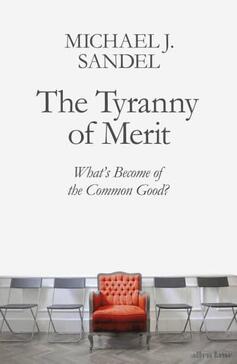 We're hosting our third Book Reading Group looking at topics in the news. This time we have chosen from the suggestions UE people sent in: 'The Tyranny of Merit: what's become of the common good?' by Michael Sandel. We'll be discussing over 5 sessions: Tuesdays 7.30pm - 8.45pm 22 February, 8 March, 29 March, 12 April, 3 May We have selected this particular book to get us thinking and discussing - is valuing merit always a good thing? What about luck, humility and consideration of the common good? We hope it aligns with the values of Urban Expression too... we will see! Some of you may be familiar with Michael Sandel as The Public Philosopher (Radio 4), gathering people from across the world (virtually) to discuss challenging ethical issues. He has a calm and considered manner which holds space for differing views to be heard peacefully. No charge to join in but please sign up through TicketTailor to get the zoom link. We look forward to seeing you!  2022 is the 25th anniversary of Urban Expression and we plan to celebrate!
Throughout 2022 we also want to take the opportunity to look ahead to the coming years, the ongoing stories and the next chapter for Urban Expression - sharing ideas and hopes and inviting others to join the journey. 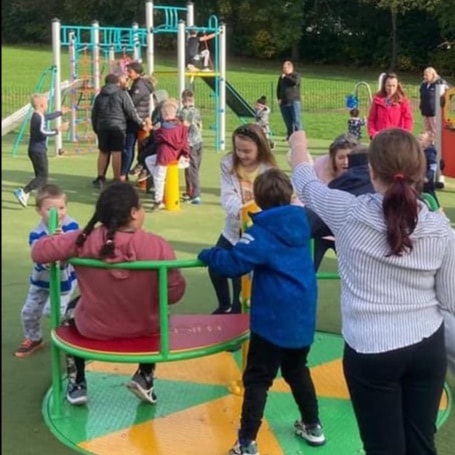 Here's a good news story from Sheffield: Ryan writes: When we first arrived in Westfield six years ago, the community had no playgrounds for children to play on. It had a few pockets of open space but no actual playground. This has led to many parents sharing their frustration that they have nowhere safe to take the children to play. This is exacerbated for those who have lived here for a long time, as at one point there were 5 pocket parks on the estate. However, gradually these parks fell into disrepair and were never replaced/updated. When we arrived, we joined a campaign group with a small group of local residents to lobby the Council to build a park but it became evident that they didn’t have the money to do this. The group were basically told that if they wanted a park, they would have to get it themselves – which is what they did! Eventually the Council came back on board with the project and ended up being a vital partner but it would not have happened without the tenacity and commitment of the local people. On Saturday 23rd October the culmination of six years of work came together when our Play Ground finally opened! It was moment of real celebration for the community with in the region of 200 people attending throughout the morning. And it has been great to see the park being used since then as place for kids to play and for parents to meet. It feels like we have played a small part in fulfilling the prophecy of Isaiah 61 v4, which says; They will rebuild the ancient ruins and restore the places long devastated; they will renew the ruined cities that have been devastated for generations.  Although we'd been able to get together as UE north and UE south in the summer of 2021 (UE south definately had better weather than the northern people who were faced with a very wet day at Yorkshire Sculpture Park!), it seemed like ages since we'd seen one another, except via Zoom. It was good to be together again in person on 13 November, although there were quite a few last-minute withdrawals due to Covid and post-Covid weariness. And some of us are clearly still anxious about meeting together at present. But the venue was excellent, we were well hosted by the staff there, and there was a mix of relaxed time for catching up and some input – first from Tracey Bennet on being ‘trauma-informed’ (although she was unwell and contributed via Zoom) and then from Barney & Sara as they introduced ‘The Big Covid Debrief’ resources. 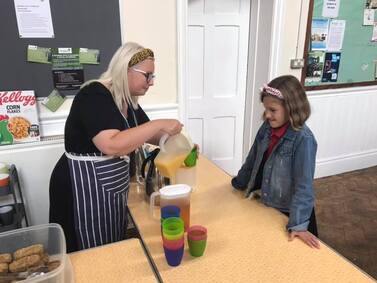 Iona writes: Here in Hull, it has felt good to start a new academic year with more freedom returning to our activities. We have had a great summer, enjoying various days out with the families and young people we know, and it has been good to bring a renewed sense of fun and togetherness into all we do after the separation and isolation we have experienced. Back in July we did a sponsored walk to raise money for our community garden. This was the first activity we did altogether after lockdown ending. It was a really fun day out and we appreciated spending time together. Also in July was our annual beach trip. One family told us this was the first time they had left Hull since moving to the city (five years ago). There was a sense of hope fulfilled – an annual favourite happening, amazing weather and being all away as a big group. All hands on deck at our Breakfast club! Relaxation in restrictions has made it much easier for everyone to ‘muck-in’ and help when needed. I have been reflecting on ‘Holy hospitality’ and how Covid restrictions really interrupted the hospitality that we in Hull were so used to sharing with each other and with our community. Jesus lived closely with his disciples and got close to those he met. He ate with people, washed their feet, laid hands on them, worked with them and even cooked for them and this kind of sharing life with others has been a marker of our activities here until Covid forced all that to stop. The beginning of this term has felt a special time coming back together again. We’ve been able to hold each other’s babies at our toddler group; children and families have eaten breakfast together at our breakfast club, rather than being separated and unable to interact; and we’ve started to plan for and look forward to new ways of sharing life together too. It’s been good to get close to people again, good to start sharing life in the ways that we’ve missed and get stuck into things with each other no longer at a distance. 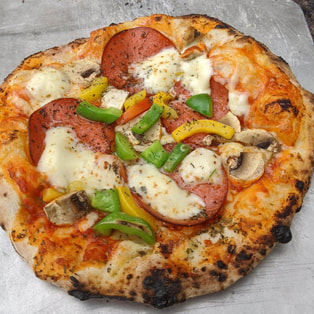 Tim in Openshaw, Manchester reflects: In Urban Expression Openshaw, the majority of our gatherings and events focus on food. We eat together. We share eucharist around the dinner table. We BBQ. We have picnics – and our Forest Church gatherings end with sharing food, frequently foraged out of God’s bounty. I have long been struck by the way in which pioneer and fresh expressions communities frequently use food as a vehicle for their spirituality and mission. This also seems to connect with what I read of the very early development of Christian community in the New Testament. And, of course, the Seder plate and common table is at the very heart of Jewish spirituality. For us, here in Openshaw, lockdown has impacted particularly hard on our common life. We did attempt to have Zoom meals, but they rapidly petered out as we were all suffering from Zoom fatigue. We have used Zoom to connect our socially distanced walks – but have very much missed the breaking of bread together (both nutritionally and symbolically). 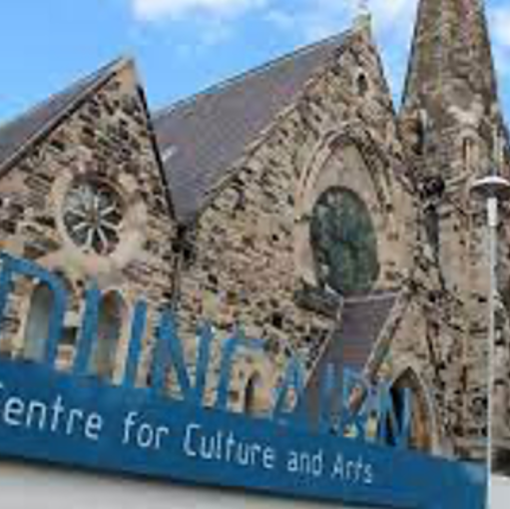 From NI Gordon, Karen and Trish write: There is a definite sense of some degree of return to normality for us in ‘Soulspace’ in both of the interface communities in which we work. It is an important facet of our work that we are embedded alongside existing community organisations and support and partner where we can. We now operate in two locations in the city, Forthspring Intercommunity Project in west Belfast and the Duncairn Arts Centre in north Belfast. Both centres had closed for much of the pandemic but now are beginning to reopen to the communities around them and so we can return to our face-to-face work which had been largely suspended over the last year. Our model of ministry, which is a chaplaincy model, relies on proximity and relationship building. Our foodbank, in which we partner with the local residents’ group, has also been well used over recent months with many people from across the communities accessing food and help with gas and electric payment cards. We have partnered with the residents’ group in a variety of projects, the most recent of which was a clean up and window box planting over the summer. In both of our locations we are engaging with the challenge of what it means to build the peace between the two communities on either side of the peace walls and separate areas. One of our more interesting projects came as a result of a particularly aggressive critic of Karen’s, who accused her of being a ‘Bizarre Feminist Character’, a description which Karen then subverted and turned into an amazingly successful fundraising campaign for Womens’ Aid through selling t-shirts with the phrase printed on them. We raised £1500 for the charity and are now on our second run of the t-shirts. 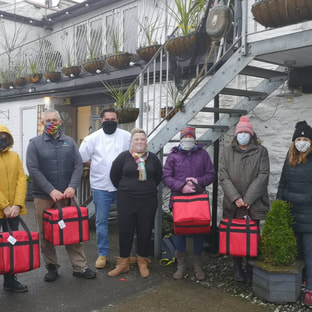 Barney in Looe writes: When we talk of coastal towns, for many of us that evokes childhood images of fish and chips, ice-creams, sandy beaches and a paddle in the clear blue sea. What is quickly forgotten is the hours of sitting in traffic on roads not built to cope with the sudden influx of holiday traffic. Perhaps it comes as a surprise to learn that coastal towns are among some of our most deprived communities in the U.K. These communities suffer from a number of issues that are rooted in the decline of their core industries. Domestic tourism has been hit by cheap package holidays abroad, but also more traditional industries, such as fishing, ship building and port activities, have been in long term decline. This, combined with their location on the margins of the country, with poor infrastructure, leads to a struggling economy and lack of services, such as health and education. The established churches in many of these small coastal towns seem to be in terminal decline, with denominations and networks instead choosing to opt for the easier wins of investing in inland churches in larger towns and cities. Below is a picture of the Looe Community Meals Team, who deliver twice-weekly cooked meals to those who are economically disadvantaged, those who are isolated and suffering from ill-health. 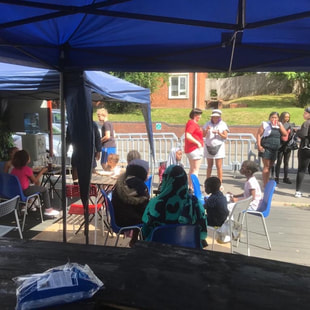 Rachel in Birmingham writes: There have definitely been highs and lows! We started lockdown operating pretty much as a food bank and delivery service to the elderly and vulnerable - this was very rewarding but also extremely sad, as we heard stories of living through lockdown with no gardens or access to internet and, of course, issues around job loss. In July, we started serving hot food from the front of the Haven, at first once a week, and through August 5 days a week. We served over 1000 lunches in total! As we did this, volunteers started coming out of the woodwork, all of them people who we had connections with but who hadn’t officially volunteered with us before. We have put in place a well-organised scheme to support them and they all sport their Haven T-shirts and ID badges with pride. The Haven has become a real hive of activity with volunteers cooking and serving our community 5 days a week In the autumn, we have managed to reopen many of our previous groups in a ‘Covid secure’ way, including twice a week café, stay-and-play and women’s group. As we look to the future of the centre, we do so with excitement: whilst it is no fun living through a pandemic and we know many who have a lot to grieve, we feel more than ever that we are in the right place and excited to work with those whom God has brought to us. |
Urban ExpressionNews from around Urban Expression Archives
February 2024
Categories |
|
Copyright Urban Expression 2024
Registered Charity 1090734 |
Click the link to stay in touch:
|
Proudly powered by Weebly

 RSS Feed
RSS Feed